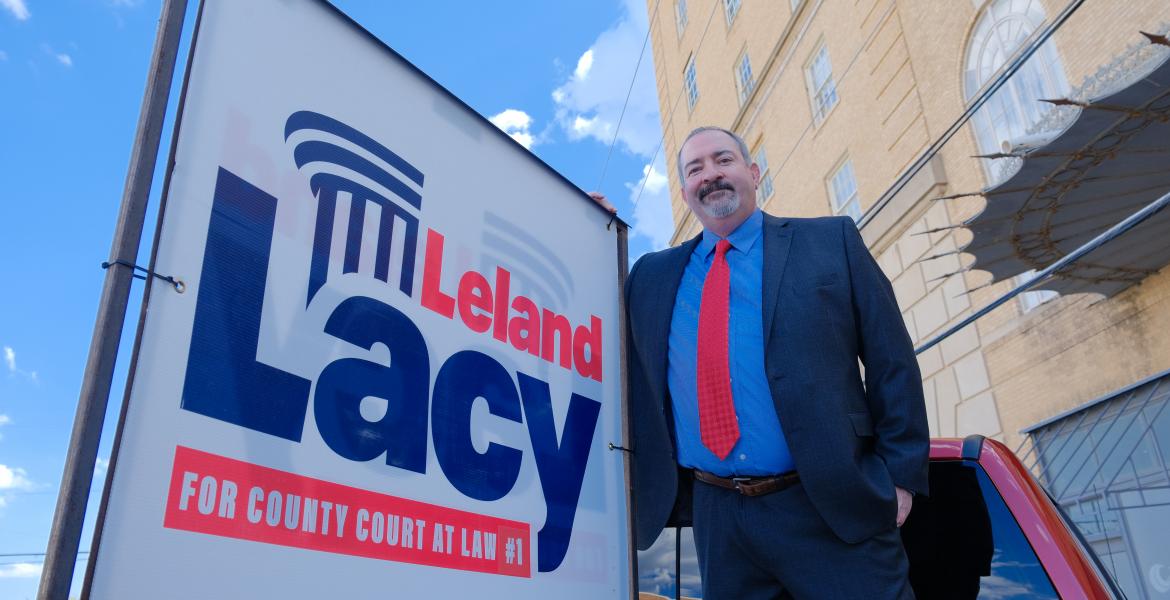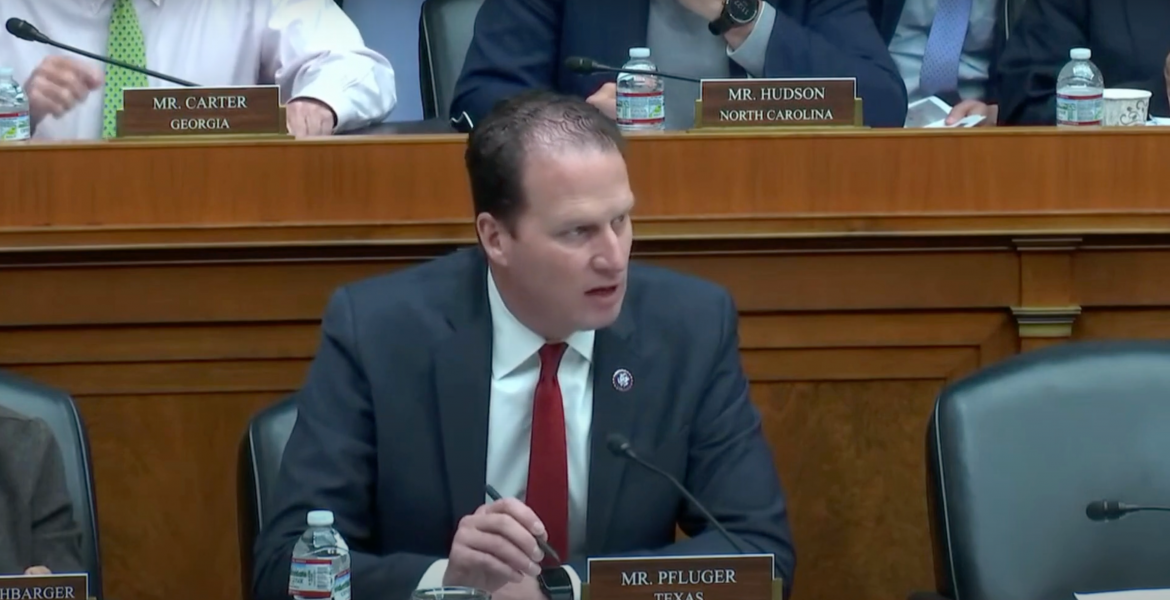SAN ANGELO, TX — Will San Angelo’s State Rep. Drew Darby become the next speaker of the Texas House of Representatives?
One of seven who have thrown their hat into the ring, Darby has represented San Angelo and the region encompassing District 72 since being elected in 2006. He was also one of outgoing Speaker Joe Straus’ team members who has campaigned tirelessly for other Republican candidates for the Texas House this year.
Darby was Straus’s pick to chair the Select Committee on State and Federal Power and Responsibility Committee. He was a member of the House Ways and Means committee that decided what tax bills would go to the floor for a vote. He also served on the Redistricting Committee during the fractious redistricting legal battle that went to the U.S. Supreme Court where the justices ruled in favor of the Republicans.
That experience may not matter to some, especially to those on the more conservative side of the Republican representatives.
Straus is considered too moderate for many of the Republican Party’s conservative activists. His lieutenants, one of whom is Darby, are also deemed moderate. But nearly all of the announced candidates for speaker rank in the 50s (scale 0-100, 0 is liberal) on the conservative activist group named Empower Texans’ fiscal responsibility index. Some view that index as some sort of absolute meter reading on a representative’s worthiness to represent Texas.
Darby’s score is 40.
Led by Michael Quinn Sullivan at Empower Texans, the Republican right has been suspicious of Darby ever since Darby proposed increasing fees for vehicle registration and flirted with increasing State gas taxes. Darby concluded that 20-cents per gallon gas tax enacted in 1990 was not keeping up with inflation. The roads out here in rural Texas, his district, needed more attention. How does the State pay for rural roads and keep up with the sprawling urban traffic demands without going deeper in debt?
Darby was attempting to solve a problem by enhancing revenue, not, as Darby often says, “taking money out of your left pocket and putting it into your right pocket and calling it done.”
But Darby isn’t a left-winger like his ET foes allege. Darby introduced a bill last session to eliminate Texas school districts' Maintenance and Operations, or M&O, property tax.
That makes Darby one of the very few legislators in the history of politics to write legislation that eliminates an entire tax.
Darby’s objective was to force a future Texas Legislature to fix the troubled school finance system before a reasonable date in the future. If no fix could be passed, under his bill, the M&O property tax funding for school districts would go away.
Had the bill been signed into law, and voters approved the referendum, legislative inaction would have wiped out $26 billion in revenue to Texas school districts in FY 2022. That threat would force the Legislature to act, Darby surmised. The M&O tax on ISDs in Texas is the largest portion of an average annual property tax bill.
Testifying to the House Ways & Means Committee on Aug. 2, 2017 in favor of Darby’s bill was no one other than ET’s leader, Michael Quinn Sullivan, according to committee notes. Sullivan is the same guy who scored Darby a 40 for fiscal responsibility.
The bill didn't make it to the House floor.
In the middle of October, a group of Republican legislators held a meeting with interested colleagues to decide on what horse they’ll deploy to knock out Darby and the others in the race for Texas House Speaker. They chose State Rep. Dennis Bonnen, who represents the Houston area around Angleton. According to the Austin-American Statesman, about 40 Republican members of the House were at that meeting over the weekend. The Quorum Report later reported, quoting sources in the conservative group of House lawmakers called The Freedom Caucus, that there were just 24.
The interesting thing is that Bonnen was also on Straus’ team as the chairman of the Ways and Means Committee and the House Speaker Pro Tem. He is certainly no darling for the Empower Texans folks either.
In addition to Darby and Bonnen, other announced candidates include Four Price of Amarillo, Tan Parker of Flower Mound, Phil King of Weatherford, and Travis Clardy of Nacogdoches
The Republican losses during the midterm elections changed the math somewhat for who will be elected speaker in January. There are 150 members of the Texas House. Of that, 83 are Republicans, 67 are Democrats. Before the election, the balance was 95-55 Republicans to Democrats.
Democrats claim, with 12 more seats, they will have a greater say in who the next speaker will be than prior to the midterm elections. One of the Democratic Party’s House members is running for speaker as well: Eric Johnson of Dallas.
This year, the Republican Party of Texas is orchestrating the Republican Caucus. The Republican Party House members are supposed to choose their candidate for speaker at a meeting at a Hyatt Regency resort east of Austin called Lost Pines on Dec. 1.
The idea of forming the Caucus is to choose only one Republican candidate and force the Republican Party to present a united choice for the Jan. 8, 2019 House Speaker vote. That way, no Republican will need to campaign with the Democrats and promise to any Democrat a coveted committee chairmanship or leadership assignment in return for their vote or support.
Building a coalition with Democrats is how Straus rose to the speakership. He told Republicans they were free to vote for their candidate other than him, but that he had most of the Democrats and enough Republican commitments to win the election for speaker regardless. Members could vote against him at their own peril. Straus won, and some Democrats were appointed by Straus as chairmen of committees with the ability to hold hostage Republican legislative priorities.
All but 28 of the 150 GOP members or candidates for House seats have signed the Republican Caucus agreement. Darby has not. Neither has Clardy.
This likely indicates Darby will pursue a two-party campaign for speaker. With more members, and leverage, Democrats are already meeting with the Republican speaker candidates.
To win, Darby needs 76 votes, or a majority, comprised of Democrats and/or Republicans, of the 150-member body.
Two key dates to watch in Darby’s run for speaker are Dec 1 when Republicans meet to see if they can decide on one candidate to elect. Then, the official vote for speaker is Jan. 8, 2019, the first day of the 86th Texas Legislative Session.
Subscribe to the LIVE! Daily
Required






Post a comment to this article here: